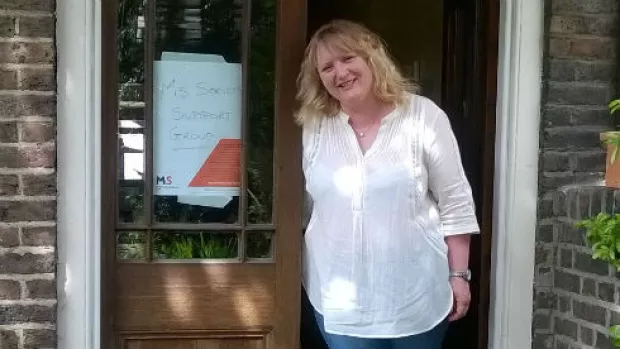
Doing more for people experiencing domestic abuse
Some people with MS experience domestic abuse. But little research has explored how best to support them. PhD student Kharis Hutchison from the University of Leeds tells us about a new project doing just that.
During the pandemic, some healthcare professionals became concerned their patients with MS were experiencing domestic abuse. My supervisor is neurologist Professor Helen Ford. Helen and her colleagues knew it couldn’t just be a lockdown phenomenon. And they quickly realised how little was known about domestic abuse in MS. They thought “we should be doing this research”.
Our goal is to improve support
I want to understand how people with MS who experience domestic abuse want to be supported. I’m trying to answer questions like:
- What's the nature of the domestic abuse and how is it impacting people?
- What are the barriers to accessing support and what should services look like?
Meanwhile, a student at the University of Nottingham is exploring the other side of this - healthcare practitioners’ experiences. And another researcher will use our findings to create a practical toolkit to improve support options.
It’s going to be quite emotional talking to people about their experiences. But I’m hopeful this project will drive real positive change.

A connection between disability and abuse
So far, I’ve been reviewing existing research. Previous studies have generally focused on people with physical or learning disabilities. There are no statistics for MS. But in the general population disabled women are most at risk of abuse, followed by disabled men. So there’s clearly a connection between disability and domestic abuse.
We think there are factors that might increase the risk of someone with MS experiencing domestic abuse. None of them are their fault. I’m looking at social factors. For example, unemployment and financial struggles, reduced independence and changing roles in a relationship.
Abuse can take many forms
The UK Government passed the Domestic Abuse Act in 2021, including the first formal definition of domestic abuse. The act says abusers might be intimate partners or other family members. I’ll also look at abuse by paid carers in a domestic setting.
The act describes different types of abuse, such as physical violence, financial abuse, emotional neglect and coercive control. And the effects are wide-reaching. Like the physical impact of an abuser taking away a wheelchair or purposely misusing medication.
We think there are factors that might increase the risk of someone with MS experiencing domestic abuse. None of them are their fault.

Letting people speak
I plan to collect data by interviewing people with MS who’ve experienced or are experiencing domestic abuse. Then we’ll run focus groups to dive deeper into our findings about what people want from support services. And we’ll learn about the barriers.
I've worked on related research about support for disabled survivors of sexual violence. It’s helped me learn how to do this type of research. Like conducting sensitive interviews where participants feel comfortable and know it’s up to them what to share.
Importantly, we have to make sure our research keeps our participants, and ourselves, safe. I’ll provide everyone with information about existing support.
Scientific and personal inspiration
As a student, I’ve been interested in gender-based violence and disability studies. On a personal level, my mum has two chronic conditions, which makes me interested in MS as another lifelong condition. This PhD brings my interests together.
It’s going to be quite emotional talking to people about their experiences. But I’m hopeful this project will drive real positive change.
We're here to help
Our MS Helpline provides emotional support for anyone affected by MS. We’re committed to safeguarding and the welfare of people using our services. If you share any concerns with us, we’ll do our best to support you.
You can email us at [email protected] or phone us for free on 0808 800 8000. The number won’t show on your phone bill. If you’re in an emergency situation, please call 999.

